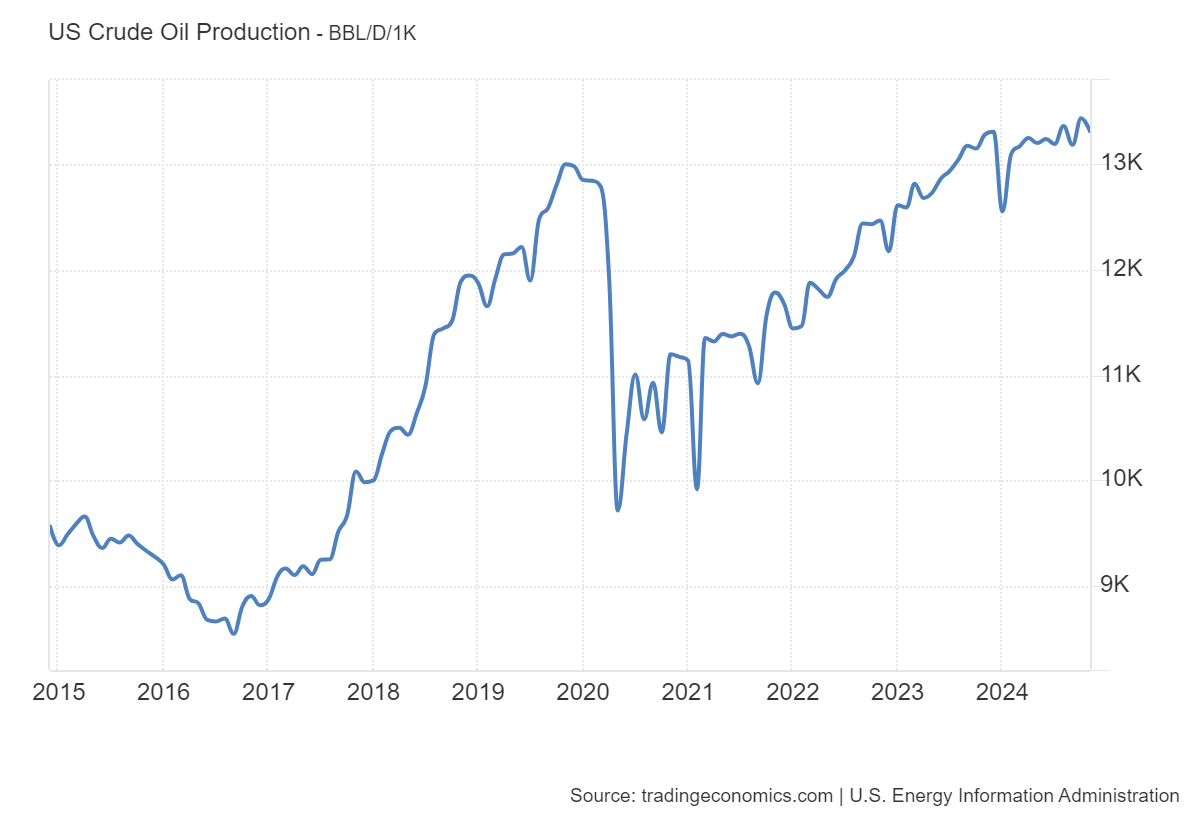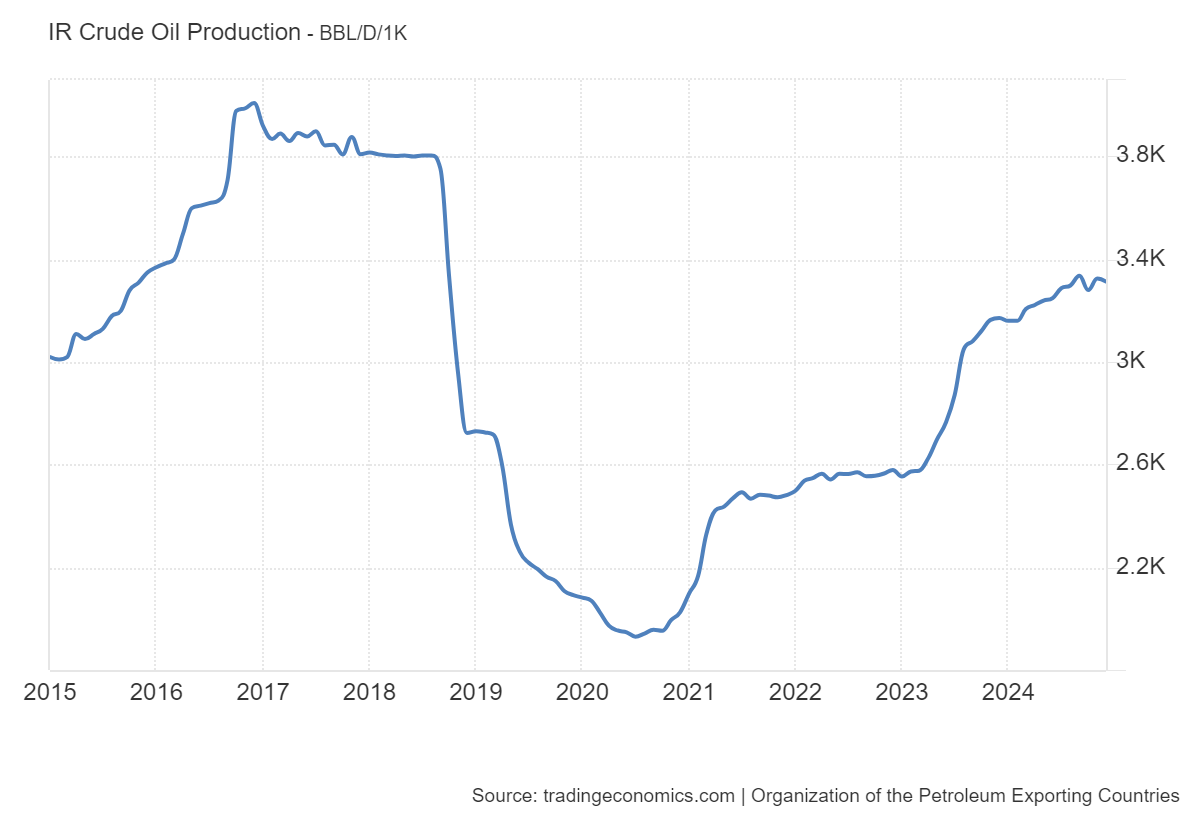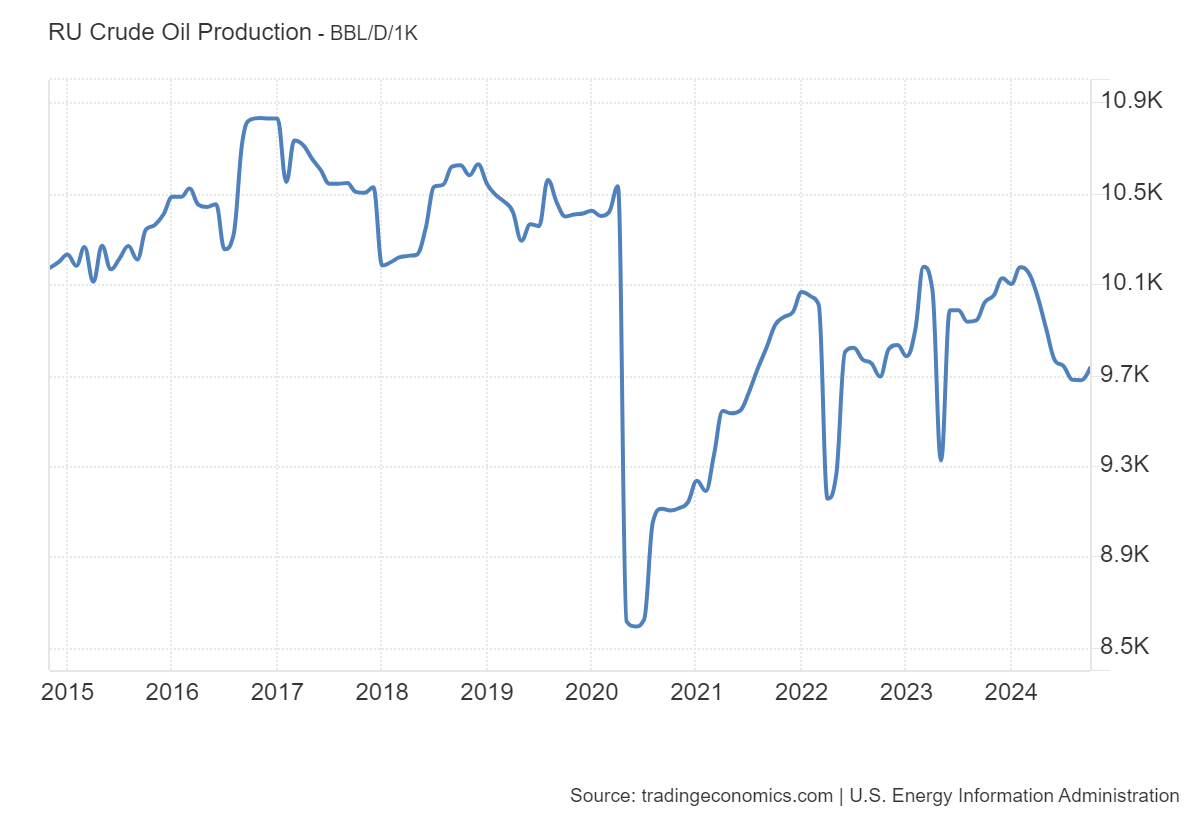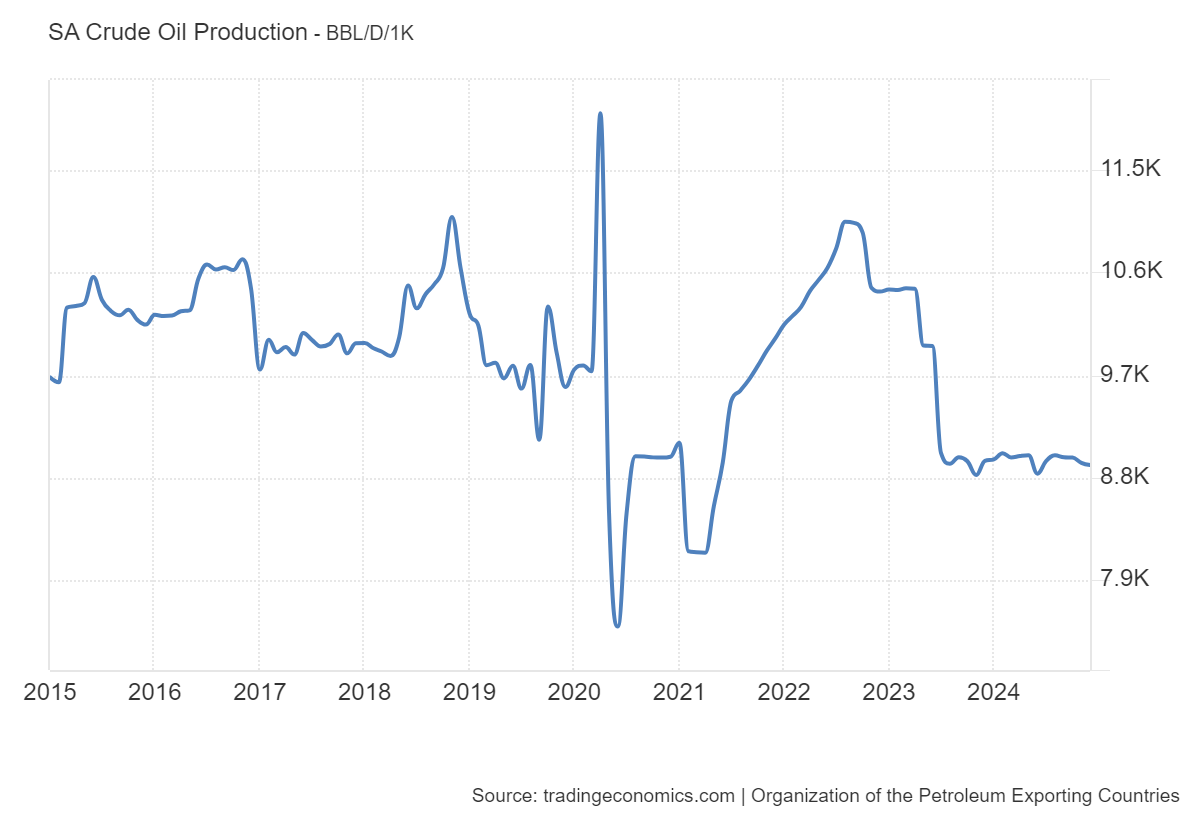Lord of oil. How Trump Terrified Russia

On the order of Davos, Donald Trump called on OPEC+ to lower oil prices. He said that if the price falls, the conflict between the Russian Federation and Ukraine will end immediately. At this moment, prices, supposedly having heard this order from the newly elected President of the United States of America, Donald Trump, immediately somehow decreased somewhat. Someone thought that even the representatives of the Organization of the Petroleum Exporting Countries OPEC+ were ready to give up their interests to President Donald Trump, so as not to incur his wrath and to become those on whom all failures, misfortunes, and negative factors can be blamed. But it is worth noting that if roosters crow before sunrise, this does not mean that the sunrise was caused by their crowing. The same situation is with oil and Donald Trump.
Oil revenues — in real estate
The newly elected President of the United States of America Donald Trump is not a sufficiently knowledgeable and qualified expert in the energy environment, but he takes the interests of oil companies into account. They receive hard money, which the Trump Organization counts on as an important source of investment in real estate, and it is precisely this that is a natural business environment for Donald Trump. His figurative formula from the pre-election days “drill, baby, drill” can now be put into practice with a long-range view of a part of the new income of oilmen, which will be directed to large-scale real estate projects not only in the form of new “Trump Towers” and not only in the United States of America, but also in Asia. In particular, it is worth noting that part of these new incomes will be directed to the oil monarchies of the Persian Gulf and, above all, in Saudi Arabia, where just at the end of last year another tower bearing his name appeared in Jeddah. It should be noted that even under the administration of former American President Joe Biden, drilling continued, which was facilitated by high oil prices, and the United States of America took a leading position in the world in terms of production volumes, confidently breaking away from the leaders, namely Saudi Arabia and the Russian Federation. As can be seen from the graph of the growth of American oil production over the past ten years, its dynamics were upward both during the first presidential term of Donald Trump and during the time of the previous President of the United States of America, Joe Biden. So, to speak, the shale revolution was in full swing, regardless of which President of the United States of America sits in the White House. Oilmen know how to do their job…
Petroleum-political constellation
The problem of the loss of influence of the United States of America in the main global oil region of the Persian Gulf, among other things, lies in the incompetent Middle East policy of the Biden-Burns-Sullivan trio. It is worth emphasizing the fact that this trio practically additionally pushed political leaders of the Saudi Arabia into the arms of the Russian Federation and the People's Republic of China (PRC). Thus, in the current situation, China has become the main trading partner of Saudi Arabia and Iran and has quite successfully played the role of a diplomatic mediator in their reconciliation.
In addition, it is worth noting that the format of the Organization of the Petroleum Exporting Countries OPEC+ is headed by a tandem of countries such as Saudi Arabia and the Russian Federation. In addition, it is worth saying that representatives of both the Russian Federation, Saudi Arabia, and Iran are satisfied with high oil prices, which they have supported by quoting exports. If we look at the oil production charts over the past ten years, a striking contrast is striking between the rising American dynamics and the balancing dynamics of the Russian Federation and Saudi Arabia. Thus, observing this chart, we can say that in the group of three global playmakers, two players, namely representatives of Saudi Arabia and the Russian Federation, are playing against the third, namely the United States of America. And it is worth noting that they are winning this game! At least for now. The new President of the United States of America Donald Trump wants to reformat the game. Two countries, namely the United States of America and Saudi Arabia, have to play against a third country. Namely, they have to play against a country like the Russian Federation, and at the same time they have to play against its ally Iran.
However, the newly elected President of the United States of America Donald Trump is also thinking about how to get money from Saudi Arabia, which in the sovereign fund of the Kingdom of sand and oil is almost a trillion dollars. It is no coincidence that the appeal of the newly elected President of the United States of America Donald Trump to representatives of Saudi Arabia regarding the reduction of oil prices contained a frank hint at the need for investments by Riyadh in the amount of 600 billion dollars in the economy of the United States of America. Crown Prince Mohammed bin Salman responded with a promise to Donald Trump. However, it is worth saying that relations between the United States and Saudi Arabia are not so simple.
The Saudi Factor
After the sluggish reaction of the United States of America during the time of Donald Trump-1 to the massive attack by Iran against the oil infrastructure of Saudi Arabia in Abqaiq and Khurais in September 2019, the leadership of Riyadh understood that security guarantees from the United States of America remained only on paper. In addition, the Saudis felt this approach to conducting business even more acutely during the presidency of the previous President of the United States of America, Joe Biden.
The return to the post of President of the United States of America, Donald Trump, and to the White House allows the Saudis to “buy” security guarantees on Saudi Arabia’s terms. Thus, political leaders of Riyadh put forward several demands in negotiations with Washington. A defense agreement modeled on the US-Japan treaty, access to critical military technologies and a rapid procurement process for advanced US weapons, assistance from the United States in developing a nuclear program with uranium enrichment capabilities that could be transformed for military use (read: creating nuclear weapons) — this is a list of the main desires of Saudi Arabia’s political leaders towards the United States of America, for which they are ready to pay with investments worth $600 billion.
However, it is worth emphasizing that, in addition to the desire to lower oil prices and receive Saudi Arabia’s money, the United States also has additional demands for Riyadh’s political leaders. The main one is the normalization of Saudi Arabia’s relations with Israel, as well as the limitation of strategic relations with the People's Republic of China (PRC) and the Russian Federation, both in bilateral formats and in the format of the Russian intergovernmental organization BRICS.
Such a tangle of mutual demands and whims between the United States of America and the political leaders of Saudi Arabia. However, it is worth emphasizing the fact that the parties seem close to a large-scale agreement, since the newly elected President of the United States of America Donald Trump emphasized his readiness to make his first foreign visit to Riyadh, as he did during his last term in office. Therefore, ensuring a downward trend in oil prices will be part of the package of agreements between the newly elected President of the United States of America Donald Trump President of the United States of America Donald Trump and Mohammed bin Salman.
The Russian Factor
Political leaders in the Kremlin are terrified of possible agreements between the United States of America and Saudi Arabia, because falling oil prices are a threat to the war budget. Therefore, at the next meeting of the Verona Forum sponsored by the Russian integrated energy company Rosneft, which took place in the emirate of Ras al-Khaimah in December 2024, Vladimir Putin’s chief oilman Igor Sechin began to voice theses that, in his opinion, should be a signal to Washington about the “kindred spirits” in the Kremlin and the White House — Presidents Vladimir Putin and Donald Trump.
His main theses:
- the need for a “green” energy transition is unfounded;
- the demand for energy is growing rapidly in developing countries, and in order to raise their standard of living to at least half the level of the “golden billion”, oil production must be increased almost twice;
- the five largest Western oil and gas companies from 2017 to 2023 increased payments to shareholders by more than $ 100 billion compared to the previous seven-year period.
To put it briefly, why do we need to bring down oil prices? On the contrary, we need to continue drilling and extracting oil, perhaps jointly in the Arctic, because we need more and more oil and money too. The calculation is not only to do something acceptable for the newly elected President of the United States of America Donald Trump, but to encourage American oil producers to maintain the existing status quo of high oil prices, because this brings dividends to shareholders, respectively, so that they influence the behavior of the owner of the White House, so that he does not introduce tough market methods towards the Russian Federation.
"Big Fish" on the Hook
It is worth mentioning that high oil prices are of interest not only to the aggressive regimes of Moscow and Tehran, but also to the leading oil companies of the United States of America. Especially those companies that made a lot of money in 2022 at the peak of oil prices. Two of them are especially notable for the fact that they traditionally have an influential lobby in the administrations of the United States of America, regardless of who occupies the post of president of the White House. These are such oil companies as ExxonMobil and Chevron, whose interests have traditionally meant a lot to American politics since the 1920s. In addition, it is important to mention that they are also known for participating in large-scale oil production projects in Kazakhstan since the 1990s. Chevron is especially known for its participation in such projects.
Oil is produced in Kazakhstan and transported to the world market through the Russian Federation via the Tengiz-Novorossiysk oil pipeline of the Caspian Pipeline Consortium (CPC). The operator of the Caspian Pipeline Consortium is the oil transportation monopoly of the Russian Federation, Transneft. Thus, the Russian Federation tightly controls the oil flow of American companies from Kazakhstan. It is worth emphasizing the fact that for the Chevron corporation, which has been a pioneer in the development of Kazakhstani fields since late Soviet times, the Tengiz field is a gold mine of global scale. The TengizChevroil joint venture (TCO, Chevron - 50%, ExxonMobil - 25%, KazMunaiGas - 20% and Lukoil - 5%) continues to develop production at the field and has invested over $ 40 billion in a new expansion project in recent years. And here is the official announcement of TengizChevroil dated January 24, which talks about the production of the first oil within the framework of this project, which will bring an additional 12 million tons of raw materials and profits to shareholders.
It is worth noting that industry analysts have repeatedly warned in the past that the Caspian Pipeline Consortium (CPC) pipeline and investments in the United States of America in Tengiz, as well as in two other megafields, namely Kashagan and Karachaganak, remain vulnerable to potential retaliation by the Russian Federation. However, in reality, the Chevron corporation is not very worried about its possible retaliation to the Russian Federation. Thus, it is worth saying that it is much easier for representatives of this campaign to resolve the issue through a chain of their lobbyists in Washington than to diversify the routes for exporting the now 40 million tons of oil produced from Kazakhstan, bypassing the Russian Federation through the Caspian Sea and the Baku-Tbilisi-Ceyhan oil pipeline.
The algorithm of Moscow's influence on the White House using the mechanism of the Caspian Pipeline Consortium (CPC) looks simplified as follows. The Kremlin's political leaders, through the Transneft company, headed by Nikolai Tokarev, formerly the head of the President of the Russian Federation Vladimir Putin in the Dresden residency of the First Main Directorate of the USSR State Security Committee, "in a friendly way" appeal to representatives of the Chevron company to "work in Washington", and they, accordingly, activate their lobbyists to remain behind the scenes. It is worth emphasizing the fact that the Caspian Pipeline Consortium (CPC) is a hook on which the Kremlin “fishermen” hooked the “big fish”, namely the leading oil companies of the United States of America.
Back in 2017, ExxonMobil and Chevron companies spoke out sharply against the sanctions against the Russian Federation in the oil sector, which were then introduced by the administration of the newly elected President of the United States of America Donald Trump in the Iranian sanctions package. Thus, it is worth noting that it was in this way that the Kremlin’s political leaders influenced the decision of the administration of the previous President of the United States of America Joe Biden to review Donald Trump’s policy on sanctions against the Nord Stream 2 gas pipeline in 2021. Thus, the channel of indirect influence of the Russian Federation through the corporate chain can be used to correct the plan of the newly elected President of the United States of America Donald Trump to reduce oil prices.
Hitting Iran with a price tag
Forcing the Ayatollah regime in Tehran to use oil resources sparingly and save them, especially against the backdrop of Iran's serious problems in the gas and electricity sectors, provoking a full-scale economic crisis there with the subsequent socio-political explosion and, as a result, regime change, is obviously an attractive scenario for the plan of the newly elected President of the United States of America, Donald Trump. Such an approach to conducting business would make it possible to seriously limit Iran's ambitions, especially in the context of its anti-Israel strategy, as well as interference in the affairs of its Arab neighbors and the supply of oil to the People's Republic of China (PRC) at reduced prices. In addition, it is worth noting that the dynamics of growth in Iranian oil production in recent years (see figure) have always provoked Republican criticism of the administration of the previous President of the United States of America, Joe Biden, which actually allowed Tehran to earn hard money and use it mainly to finance its missile and nuclear programs, as well as to increase the potential of its proxies in the Middle East, namely the Islamic Resistance Movement called Hamas, the political party and paramilitary group called Hezbollah and the Houthis, also known as the Houthi movement. Now the newly elected President of the United States of America, Donald Trump, has the opportunity to destroy the Ayatollah regime in Tehran if the leaders of Saudi Arabia agree to reduce the price of oil and fix it at low levels for a long time.
Panda Smile
Lower oil prices will lead to a revival of the Chinese economy, and this is something that political leaders in Washington definitely do not want. It is important to note that cheap oil is exactly what the People's Republic of China (PRC) needs, which, by the way, has been intensively increasing its own oil production, including shale, over the past eight years. In addition, it is necessary to emphasize the fact that while developing "green" energy, the People's Republic of China is reducing the consumption of fossil energy resources, the import of which creates a dependence on external sources and logistics, which is vulnerable to the actions of the enemies of the Celestial Empire, primarily the fleet of the United States of America. Therefore, with a panda smile, Beijing is watching Washington's actions. It is worth noting that, in such a situation that has developed, the United States of America is already powerless to stop, but the People's Republic of China (PRC) is able, together with the Russian Federation, to show the United States of America its strength, power, and various possibilities of influence.
And what will happen next?
And the political leaders of the United States of America themselves are not without scepticism about the possibility of American shale producers to afford the luxury of lowering oil prices. After all, the cost of producing shale oil is much higher than that of producing traditional oil. It is important to emphasize that the break-even point for production is called with a fairly wide dispersion – from $45 to $66 per barrel. So, in this way, lowering the price to $50 per barrel will undoubtedly hit a certain layer of the producers themselves in the United States of America with a higher cost of production at the wellhead.
However, if the newly elected President of the United States of America Donald Trump, for various reasons, does not want to make concessions to the political leaders of Saudi Arabia, then they have the opportunity to force him to do what Mohammed bin Salman wants, because the break-even point for Middle Eastern oil, according to Rystad Energy, is $ 27 per barrel. That is why political leaders in Saudi Arabia can afford to reduce the price to $ 30.
In such a situation, the United States of America is, of course, still strong country, but far from omnipotent. And the newly elected President of the United States of America Donald Trump clearly does not look like the lord of oil and the tamer of those who start wars. In his soul, dark as oil, nothing but shades of black can be found. Thus, the instinct of global supremacy reigned on the banks of the Potomac with his appointment to the White House. In addition, it is important to note that the cowboy-extortionist style of the head of the United States of America is currently not bringing him the desired results. However, it is worth emphasizing that this is not the case when in a few weeks after the inauguration of the new-old president of the United States of America, one can expect results. Moreover, it is worth saying that no decisive results can be achieved under conditions when the newly elected president Donald Trump turns allies and partners into ill-wishers and enemies. How can you make America great again under such conditions!
Thus, it is necessary to emphasize that in fact, only the actions of the Defense Forces of Ukraine against the aggressor's fuel infrastructure are an effective mechanism for reducing revenues to the budget of the Russian Federation, which it uses for war with our country. Ultimately, the administration of the newly elected President of the United States of America, Donald Trump, should understand that providing Ukraine with longer-range weapons of destruction and lifting any restrictions on their use will have a positive effect on American oil companies, namely, expanding their market niche by reducing the share of the Russian Federation. However, it is not worth hoping for such an understanding of things yet. Therefore, we need to destroy the enemy's oil infrastructure with the means at our disposal.
Please select it with the mouse and press Ctrl+Enter or Submit a bug




















 Login with Google
Login with Google